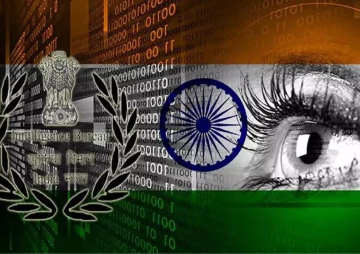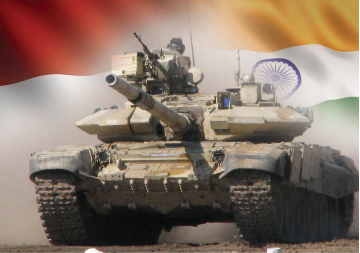Discussing Dr. C Raja Mohan's book 'Modi's World: Expanding India's Sphere of Influence' in Kolkata, former Foreign Secretary K. Srinivasan said foreign policy has to be a combination of aspirations and capabilities. He said translating aspirations into policy would be a key challenge for the government.

The fact that there was going to be a change in India’s worldview was evident during the moments leading up to the election of Narendra Modi as Prime Minister of India, said Dr. C. Raja Mohan, at the release of his book - Modi’s World: Expanding India’s Sphere of Influence, at ORF Kolkata on 4 August 2015. Grouped under key issues that the Prime Minister addressed in his first year in office, the book attempts to review Modi’s work so far and how that may be consequential in the time to come. Recognising that there exists a polarised environment in the country on many fronts, Dr. Raja Mohan acknowledged the challenges of writing a book on this subject so soon into the government’s tenure.
’Modi’s World: Expanding India’s Sphere of Influence’
The author identifies two vital points which are singular for the Modi government and which have a lot of potential for establishing both change as well as continuity in the country. The first is the level of individual energy that Modi brings to the table. After Rajiv Gandhi, Modi is the first prime minister to be of a relatively younger age and that contributes to the individual capacity for work and energy that is visible in him. Modi has also been able to strike a different path than those followed by previous BJP leaders. The second is the domestic political strength which the government possesses making a big difference in the implementation of government initiatives and decisions. The government under Modi is thus headed towards a more confident globalization marking a major departure from the reluctance for too much reform that typified previous governments.
Among the key issues discussed in the book, one of the most notable is that the Modi government has been able to underscore the linking of the economy with foreign policy. At a time that is increasingly characterised by economic interdependence, the amount of interest in foreign affairs that is generated can have significant political and socio-economic implications. Modi’s push for economic integration is also important in this regard. Second, Modi has been able to put forth a ’region-first’ policy by engaging with neighbouring states in a meaningful way. Added to this is the fact that the prime minister is engaging in political communication on a very direct level which helps to complement the work that is being done by the bureaucracy. Third, the government has placed a much needed emphasis on the recognition and invigoration of India’s civilizational identity and has also started to integrate the Indian diaspora with the larger goals of economy strategy. Fourth, Modi’s foreign interactions have not taken cognizance of one defining idea that has been central to India’s foreign engagement till now: that is, the idea of non-alignment. Modi’s India is therefore evidently looking for strategic influence and creating new rules of engagement.
Finally, Dr. Raja Mohan identifies two weaknesses in his book. The first is that for the government, a lot depends on how the domestic economic growth continues. The second is the question of internal unity that the government needs to address.
Former Foreign Secretary Mr. Krishnan Srinivasan discussed some of the key points raised in the book and offered his observations on the same. He said that although it is probably too soon to comment on many of the broad issues raised about Modi’s first year in office, perhaps it is time to consider certain overarching frameworks for understanding the progress of the government.
Observing that foreign policy has to be a combination of aspirations and capabilities, he questioned the extent to which the prime minister’s foreign engagements would receive domestic support. Translating aspirations into policy would hence be a key challenge for the government. He cautioned that India should be prepared for a more globally assertive China and that the country should be looking for parallel interests in Asia and not necessarily ways to counter or contain China. On the issue of China, he further mentioned that in India, the image of China is much more negative than in other countries of the region and it is therefore necessary to build a more nuanced perception about China within the country to sustain good neighbourliness.
Finally he highlighted two major difficulties for Modi in the time to come. First, given that Modi is a transformative figure, most people would want him to succeed, but there will be an India after Modi and to make his successes sustained, he has the Herculean task of changing fixed mindsets. The question of whether he can rise to the challenge remains to be answered. Second, and this follows from the first, there is neither the desire nor the drive for change in the country. This problem is especially pronounced in the case of the bureaucracy. This is a huge problem that Modi would need to address at every step of the way. He concluded saying that it all depends on whether it is going to be Modi’s world or Modi’s world without India.
(The report is prepaed by Pratnashree Basu, Junior Fellow, Observation Research Foundation, Kolkata)
The views expressed above belong to the author(s). ORF research and analyses now available on Telegram! Click here to access our curated content — blogs, longforms and interviews.




 PREV
PREV

